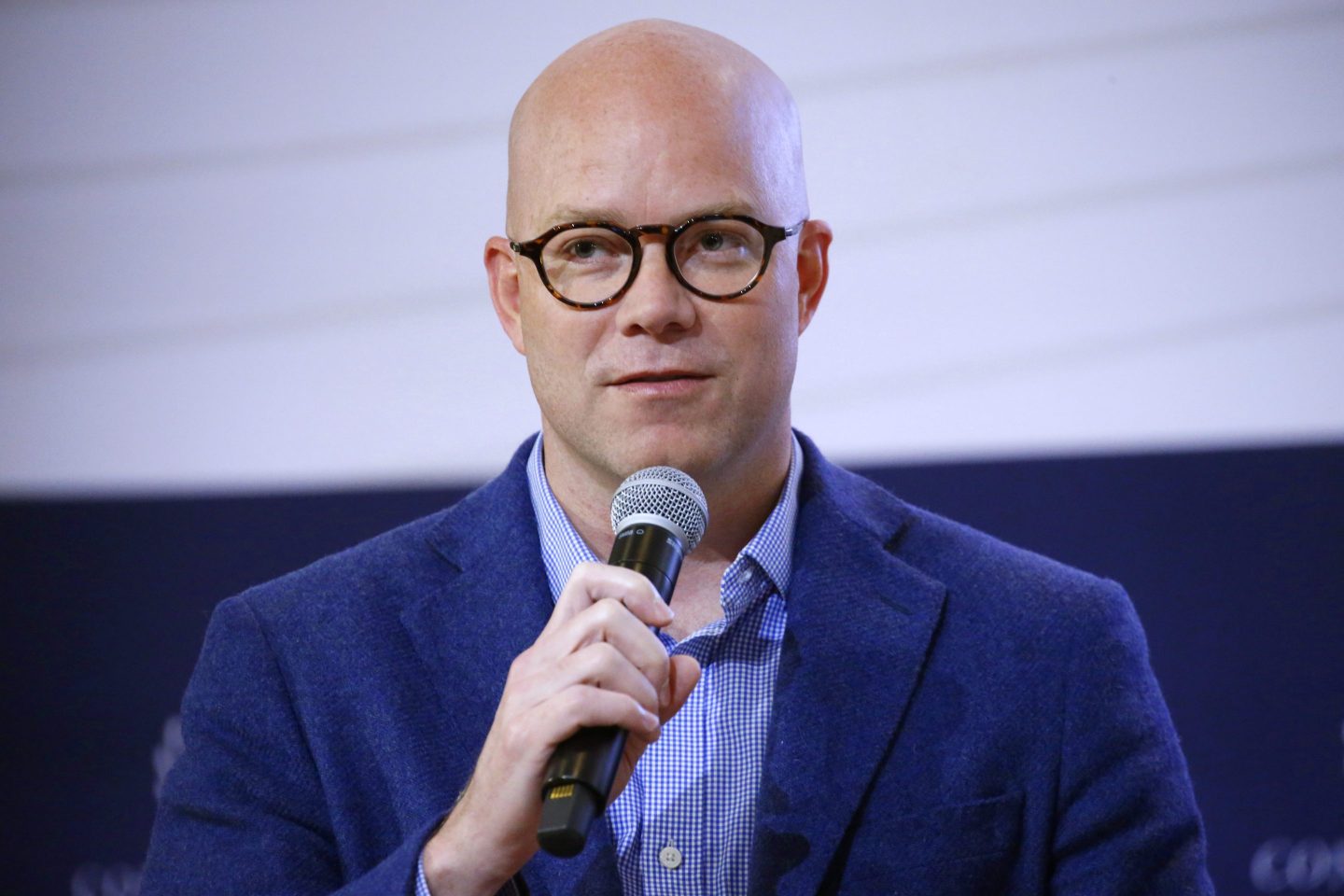Good morning.
One reason the ESG investing movement has gone awry is that it focused more on minimizing risk than on maximizing impact. In the venture world, it is “impact” that holds sway, and that’s where you find visionary founders whose goal from day one was to make the world a better place.
Davis Smith, founder of Cotopaxi, the outdoor gear company, is one of those—its motto is “Gear for Good.” Smith was our guest on Leadership Next this week, and he explains why he abandoned plans to join a nonprofit and instead became an entrepreneur: “I wanted to have a bigger impact.” From the beginning, he pledged to give away at least 1% of revenue, and in some years significantly more than that.
“I hired a chief impact officer before I hired a marketer. And I remember my board in the early days saying, ‘Wait, Davis, are you sure about this? Why are you hiring someone to give away your money before you’ve made your money?’ And my argument was: Hey, the only thing that really sets us apart from everyone else is that we’re going to do impact better than anyone else.”
While a focus on doing good is Cotopaxi’s differentiator in the marketplace—employees and customers are drawn to its mission—Smith wants to spread the magic to others.
“I feel like a big part of my responsibility as the founder of Cotopaxi is to evangelize this idea that business can be a force for good in the world, and that we have a responsibility to transform capitalism.”
Cotopaxi received a $45 million investment from Bain Capital’s “Double Impact” fund, and managing director Cecilia Chao joined Smith, Ellen McGirt and me for the interview. This is Chao:
“When we first launched our fund in 2016, folks didn’t really know what impact investing was. Is it a strategy? A stage of growth?… Today, everybody talks about impact investing. It has grown tremendously in terms of companies that define themselves as impact as well as investors in the space.”
Chao believes “impact investing” will ultimately become just good investing.
“In today’s world, you can’t just focus on the financials. Because in the long term, that’s not a sustainable business model. That’s what the name ‘Double Impact’ implies. Deliver competitive financial returns alongside measurable social and environmental outcomes.”
You can listen to the interview on Apple or Spotify. Other news below. And be sure to read Jeremy Kahn’s piece on how OpenAI went from being Microsoft’s “Google killer” to “not ready for human contact,” overnight.
More news below.

Alan Murray
@alansmurray
alan.murray@fortune.com
TOP NEWS
2,000 cut from McKinsey
McKinsey is reportedly planning to cut approximately 2,000 jobs, focusing on support staff in roles that don’t have direct contact with clients. The plan, called Project Magnolia, is expected to finalize in the coming weeks. The firm recorded $15 billion in revenue in 2021 and increased that number in 2022. Bloomberg
No FTC intervention
The Federal Trade Commission (FTC) has decided not to challenge Amazon’s $3.49 billion acquisition of One Medical parent 1Life Healthcare. The agency is planning to issue a letter to the companies warning that the investigation remains open despite the expiration of the statutory deadline for the antitrust review. This is the second time the FTC under Chair Lina Khan has declined to block a deal by Amazon. Reuters
More four-day work weeks
A six-month study involving 61 British businesses that participated in a four-day workweek trial has found that more than 90% of the companies will continue testing the shorter week after experiencing declines in worker turnover and absenteeism while maintaining productivity levels. Wall Street Journal
AROUND THE WATERCOOLER
Big Tech goes back to moving fast and breaking things, by David Meyer
Paying for Meta’s blue tick won’t buy you respect, leadership experts say, by Orianna Rosa Royle
Investing advice the wealthiest give their own children, by Lucy Brewster
Working from home can save workers thousands a year—here are the average savings in 12 American cities, by Chloe Berger
Binance’s chief strategy officer fears strict U.S. crypto regulation could ‘choke out’ the industry and cause ‘real market volatility’, by Will Daniel
This edition of CEO Daily was edited by Jackson Fordyce.
This is the web version of CEO Daily, a newsletter of must-read insights from Fortune CEO Alan Murray. Sign up to get it delivered free to your inbox.













